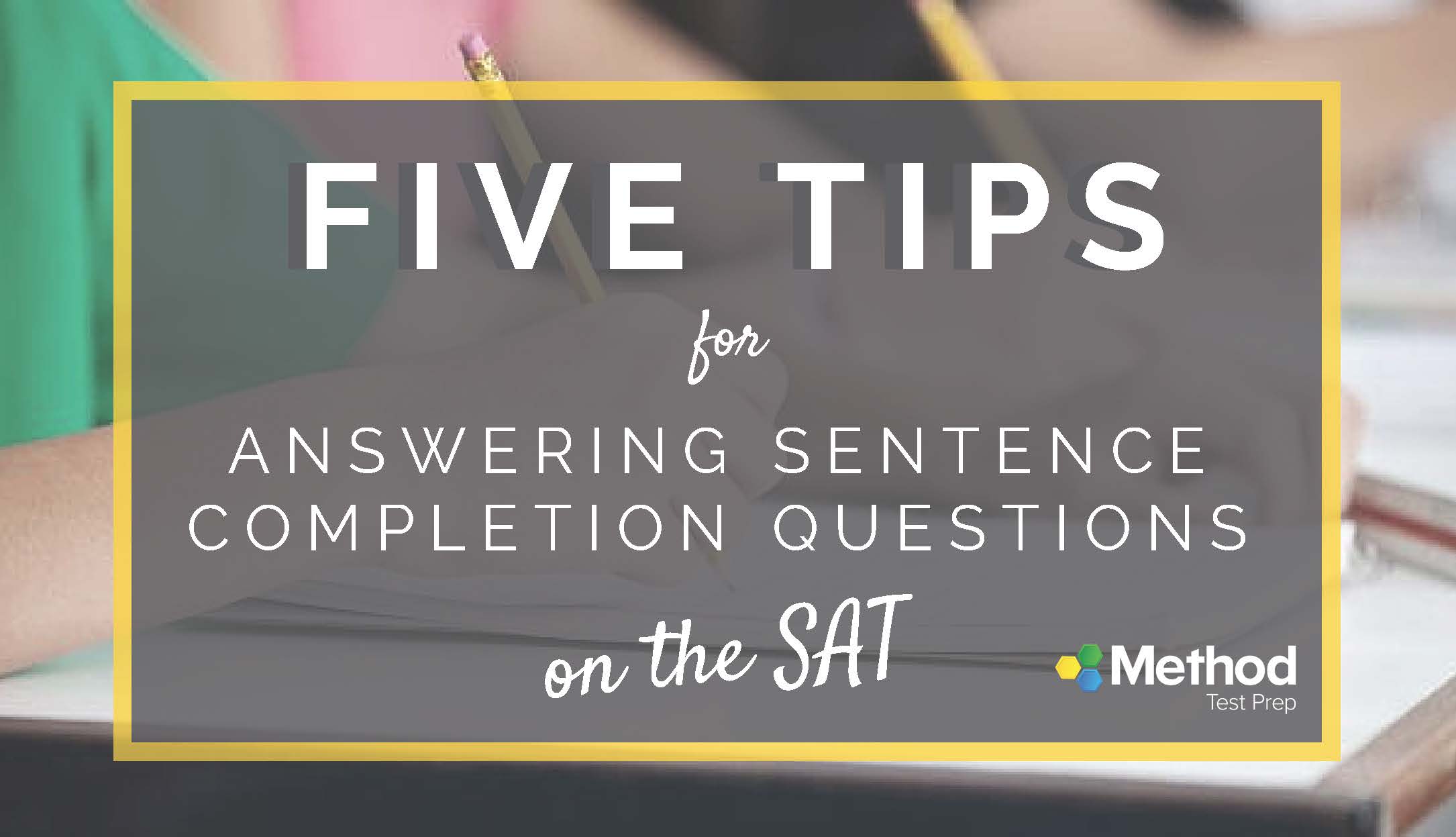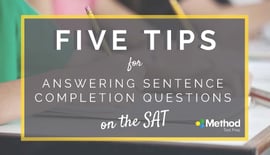5 Tips for Answering SAT Sentence Completion Questions

 Sentence completion accounts for 30% of the SAT’s critical reading score. While many students believe that the key to answering these questions is to build a strong vocabulary, establishing strong deductive logic abilities is just as important. These tips will help you solve those test questions without forcing you to use flashcards 24/7.
Sentence completion accounts for 30% of the SAT’s critical reading score. While many students believe that the key to answering these questions is to build a strong vocabulary, establishing strong deductive logic abilities is just as important. These tips will help you solve those test questions without forcing you to use flashcards 24/7.
1. Fill in your own answers first.
As you read the sentence, think about potential answers using only the context clues located in the sentence. Are the words offering a positive or negative connotation? If you have two blanks to fill in, determine if they are going to be synonyms or antonyms first. Come up with at least one word that would make sense in the sentence before you even look at answers provided.
2. If you must guess, do so wisely.
Make sure you boost your chances of providing a correct answer by undergoing a process of elimination. Try to cross out two possible answers before guessing. Never cross out an answer simply because you don’t know what the word means, and don’t automatically choose an answer for the same reason.
3. Look for tricky words.
Some words are designed to trick you. These include words like “but” or “though” that totally change the direction of the sentence. Underline or circle these words when you find them in the sentence to remind you of what you are working with.
4. Don’t be afraid to take notes.
Taking notes can help you determine the meaning of a sentence, especially when it comes to determining the connotation of the words you are looking for. Use positive and negative signs as indicators.
5. Learn common suffixes and prefixes.
Knowing the meanings common suffixes and prefixes can help you rule out answers, even if you do not know exactly what the words mean. For instance, you might be able to rule out a word that begins with “pre” simply because the word you are looking for has something to do with an event that happened in the past.
SAT sentence completion questions are difficult, especially for those who struggle with English. The good news is that they get easier with practice! If you are looking for more tips for taking the SAT, contact us to learn more.


